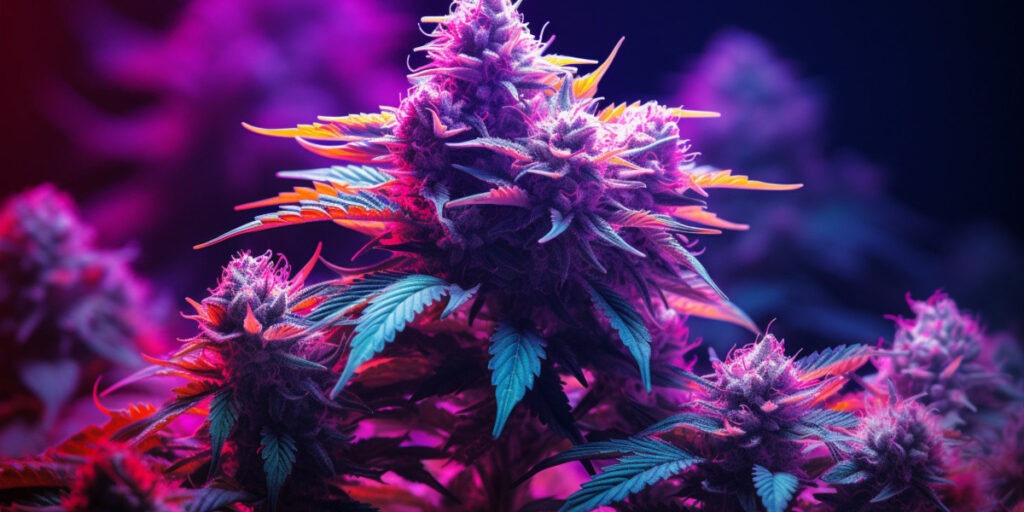Are you curious about the power of cannabis and the different cannabinoids it contains? In this article, we’ll explore the fascinating world of THCa and THCv, two lesser-known cannabinoids found in the cannabis plant.
By understanding the differences between these compounds, you can unlock the true potential of cannabis for your wellness routine. Discover the distinct properties, potential benefits, and legal status of THCa and THCv.
Empower yourself to make informed decisions in your cannabis journey and unleash the power of cannabis with THCa and THCv.
Key Takeaways
- THCa is the non-psychoactive precursor to THC found in raw and live cannabis plants.
- THCv is a lesser-known cannabinoid structurally similar to THC but with milder psychoactive properties.
- THCa and THCv have different effects on appetite and metabolism compared to THC.
- The legal status of THCa and THCv depends on their source and THC content, and is subject to ongoing debate.
Understanding THCa and THCv
To gain a comprehensive understanding of THCa and THCv, you should explore their unique properties and effects.
Let’s start by discussing the extraction methods for THCa and THCv. These cannabinoids can be extracted from cannabis using various techniques, including solvent-based extraction methods like ethanol or hydrocarbon extraction, or non-solvent methods such as rosin pressing or ice water hash. Each method has its advantages and drawbacks in terms of yield and purity.
When comparing THCa and THCv in terms of potency, it’s important to note that THCa is the precursor to THC and is non-psychoactive. However, when THCa is decarboxylated through heating or combustion, it converts into THC and becomes psychoactive. On the other hand, THCv is mildly psychoactive and is structurally similar to THC, but it has distinct effects. THCv has been found to have a higher potency in terms of reducing appetite and potentially promoting weight loss compared to THC.
Molecular Differences and Effects
Explore the molecular differences and effects of THCa and THCv to understand the unique properties of these cannabinoids.
- Molecular structure comparison:
- THCa differs from THC in its molecular structure.
- THCv is structurally similar to THC but has different effects.
- Their chemical structures differ, leading to unique properties.
- Psychoactive properties comparison:
- THCa is non-psychoactive and doesn’t produce psychoactive effects.
- THCv is mildly psychoactive, but its psychoactive properties are milder compared to THC.
- THCv’s effects on appetite and metabolism differ from THC.
Understanding the molecular structure and psychoactive properties of THCa and THCv is crucial in comprehending their distinct effects on the body.
While THCa is non-psychoactive, THCv exhibits mild psychoactive properties. These differences are a result of their unique molecular structures. Additionally, THCv’s effects on appetite and metabolism differ from THC, making it a potentially valuable cannabinoid for weight management.
Potential Medical Benefits
Discover the potential medical benefits of THCa and THCv, including their ability to alleviate symptoms and promote overall wellness.
Both THCa and THCv have shown promise in pain management and the treatment of neurological disorders.
THCa has been found to have anti-inflammatory and analgesic properties, making it a potential option for relieving pain. It may also have neuroprotective effects, which could be beneficial for neurological conditions such as multiple sclerosis or Parkinson’s disease.
On the other hand, THCv has been studied for its anticonvulsant properties, suggesting it could be used in the treatment of epilepsy and other seizure disorders.
Further research is needed to fully understand the therapeutic potential of THCa and THCv, but early studies indicate their promising role in managing pain and neurological disorders.
Legal Considerations and Debates
You can understand the legal considerations and debates surrounding THCa and THCv.
Legalization debates: The legal status of THCa and THCv depends on their source and THC content. If derived from hemp with THC content below 0.3%, they’re considered legal under federal law. However, the interpretation of legal status is subject to ongoing debate. States also have the power to regulate hemp-derived products within their jurisdictions.
Regulatory challenges: The DEA considers all synthetically derived tetrahydrocannabinol to be Schedule I substances. This poses regulatory challenges for the production and distribution of THCv products. Additionally, ensuring accurate labeling and testing of THCa and THCv products presents regulatory hurdles.
As the cannabis industry continues to evolve, the legal landscape surrounding THCa and THCv remains complex. Legalization debates and regulatory challenges influence the availability and accessibility of these cannabinoids, making it essential to stay informed on the ever-changing legal considerations.
Exploring THCa and THCv Products
The availability and variety of THCa and THCv products offer you unique ways to incorporate these cannabinoids into your wellness routines. THCa and THCv products come in a range of forms, from flowers to highly concentrated extracts. These products provide different options for you to experience the benefits of THCa and THCv.
For example, high THCa pre-rolls allow you to enjoy the non-psychoactive benefits of THCa. Exotic THCa flower offers a distinct experience with its high THCa content. If you’re looking for a more concentrated form, THCa Diamonds, with their purity of over 95%, can be dabbed or added to flower to enhance your cannabis experience.
With these products, you can explore the potential benefits of THCa and THCv in a way that suits your preferences and needs.
Incorporating THCa and THCv Into Wellness Routines
Try incorporating THCa and THCv into your wellness routines to unlock their potential benefits. These cannabinoids offer unique properties that can enhance your overall well-being.
Here are three ways to explore the benefits of THCa and THCv in healthcare:
- Consider using high THCa pre-rolls: These products provide the non-psychoactive benefits of THCa, allowing you to experience its therapeutic effects without feeling high.
- Try exotic THCa flower: This option offers a unique experience with its high THCa content. It can be added to your routine to provide a potent dose of THCa.
- Explore THCa Diamonds: These highly concentrated extracts contain over 95% purity of THCa. They can be dabbed or added to flower, enhancing the cannabis experience and allowing you to reap the potential benefits of THCa.
Incorporating THCa and THCv into your wellness routines can be a valuable addition to promote overall health and well-being.
Unleashing the Power of Cannabis With THCa and THCv
Unleash the power of cannabis by incorporating the unique properties of THCa and THCv into your wellness routine. These cannabinoids offer a world of possibilities when it comes to exploring the therapeutic potential of cannabis. Understanding their unique properties is key to maximizing their benefits.
THCa, the non-psychoactive precursor to THC, provides a range of medicinal properties without the high. It can be found in raw and live cannabis plants and converts into THC through decarboxylation.
On the other hand, THCv, a lesser-known cannabinoid, has milder psychoactive properties compared to THC. It has been shown to potentially reduce appetite and promote weight loss, making it an intriguing option for those seeking support in managing their weight.
Frequently Asked Questions
Are THCa and THCv the Only Cannabinoids Found in Cannabis?
Yes, THCa and THCv are two cannabinoids found in cannabis, but they are not the only ones. The cannabis plant contains a diverse range of cannabinoids, each with its own unique therapeutic potential.
Can You Get High From Consuming Products Containing Thca?
Yes, you can get high from consuming products containing THCa. THCa is the precursor to THC, which is the psychoactive compound in cannabis. However, THCa itself is non-psychoactive until it is converted into THC through decarboxylation.
What Are the Potential Side Effects of Thcv?
The potential risks and dosage considerations of THCv include mild psychoactive effects and appetite suppression. It is important to consult with a healthcare professional for personalized guidance on using THCv safely and effectively.
Are There Any Known Drug Interactions With THCa and Thcv?
There is limited research on potential drug interactions with THCa and THCv. It is crucial to consult with a healthcare professional before combining them with other medications to ensure safety and effectiveness.
Can THCa and THCv Be Used as a Treatment for Specific Medical Conditions?
THCa and THCv show promise as treatment options for specific medical conditions. Potential benefits include reducing appetite, promoting weight loss, and unique therapeutic effects. Further research is needed to fully understand their potential in medical treatment.
Conclusion
In conclusion, THCa and THCv are two lesser-known cannabinoids found in the cannabis plant that offer unique properties and potential benefits.
THCa serves as the precursor to THC, the psychoactive compound in cannabis, while THCv has milder psychoactive effects and affects appetite and metabolism.
Understanding these cannabinoids can help individuals make informed decisions regarding their cannabis journey. Whether seeking non-psychoactive benefits or a unique cannabis experience, exploring THCa and THCv can unlock the true power of cannabis for wellness routines.







